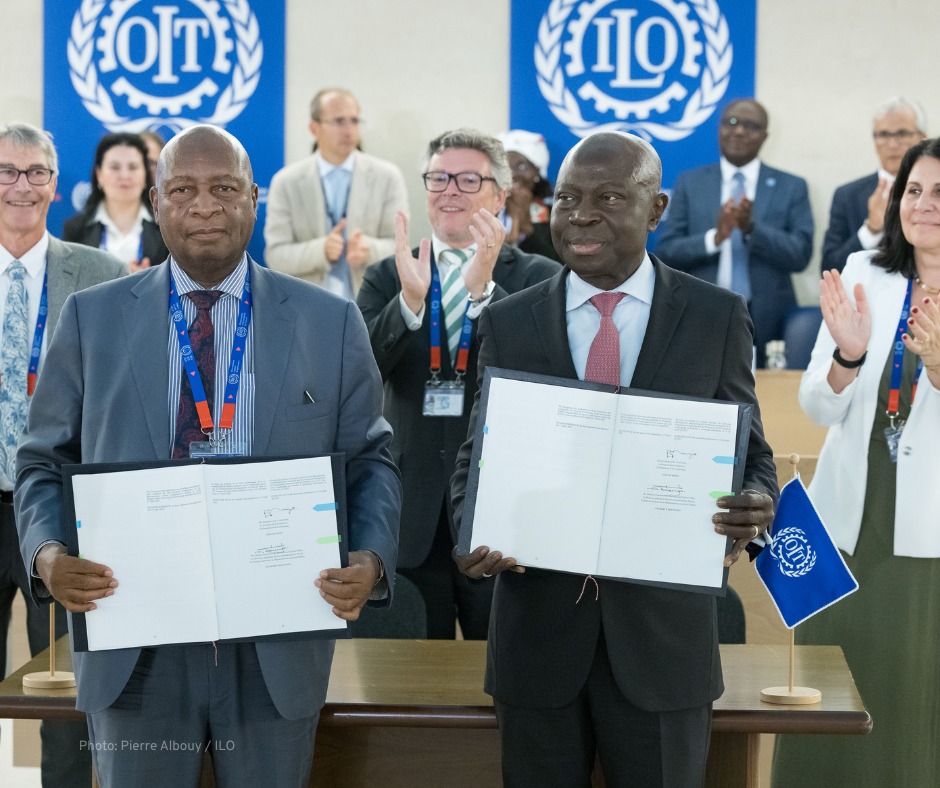ILO Sets New Global Rules to Protect Workers from Health Hazards
The International Labour Organization (ILO) has adopted its first-ever legally binding international labour standards focused on protecting workers from biological hazards in the workplace, during the 113th Session of the International Labour Conference (ILC), which concluded on 13 June 2025 in Geneva.
The landmark Convention C192 on Biological Hazards and its accompanying Recommendation provide a comprehensive framework for Member States to develop national policies to prevent, assess, and respond to biological risks at work. These include infectious diseases, pandemics, and exposures through airborne, contact, or vector-borne transmission. The Convention mandates employers to collaborate with workers on protective measures and ensure training and access to accurate hazard information.
The Recommendation gives further guidance on risk assessment, early warning systems, preparedness for outbreaks, and workplace response strategies. Together, these instruments mark a pivotal advance in global occupational health and safety, especially following the lessons of the COVID-19 pandemic.
“These new instruments represent a major step forward in creating safer working conditions and preventing future biological crises across all sectors,” said ILO Director-General Gilbert F. Houngbo.
The Conference also launched its first-ever standard-setting discussion on decent work in the platform economy, a move aimed at protecting the rights of digital platform workers, such as delivery riders and freelance tech workers. The session agreed on a dual framework — a future Convention and Recommendation — and outlined core principles including fair remuneration, occupational safety, social protection, data privacy, and access to grievance mechanisms.
The debate will continue at the 114th Session of the ILC in 2026, with the goal of finalizing and adopting both instruments.
A significant Resolution on reducing informality was also adopted, calling for urgent measures to improve working conditions, extend social protection, and create decent jobs for workers trapped in the informal economy. The resolution mandates the ILO to design a global roadmap to support countries in formalizing their labour markets.
The Conference approved seven amendments to the Maritime Labour Convention, 2006 (MLC, 2006), enhancing seafarer protections by addressing violence and harassment onboard, reinforcing rights to shore leave and repatriation, and recognizing seafarers as key workers. The updates also aim to improve medical access and ensure fair treatment in cases of detention or accidents at sea.
Additionally, the ILC gave formal approval for the ILO’s tripartite contribution to the upcoming Second World Summit for Social Development, to be held in November 2025 in Doha, Qatar. The Resolution encourages strong participation by employers, workers, and governments and appoints the ILO to lead follow-up and monitoring efforts after the summit.
The Conference adopted a Resolution on Myanmar, urging the country’s military authorities to implement recommendations from the ILO Commission of Inquiry concerning forced labour and freedom of association. It also called for strengthened international oversight to safeguard workers’ rights in the country.
During a special sitting on Belarus, the Committee on the Application of Standards expressed deep concern over the continued persecution of trade unionists and urged compliance with longstanding recommendations on freedom of association (Conventions 87 and 98). The Committee also reviewed labour rights compliance in 24 other countries.
In another notable development, the ILC decided to formally invite Palestine to participate as a non-member observer State in ILO meetings, moving beyond its previous status as a liberation movement.
On the sidelines of the ILC, the second annual forum of the Global Coalition for Social Justice was held on 12 June. It brought together ministers, UN partners, employers, workers, civil society, and academics to reaffirm commitments to inclusive economic development. The forum featured Dominican Republic President Luis Abinader and Brazil’s Minister of Labour Luiz Marinho, co-chair of the Coalition’s Coordinating Group.
In his closing address, ILO Director-General Gilbert F. Houngbo emphasized the enduring importance of the organization’s mission.
“Through your response to my report, I have heard a broad consensus that social dialogue and democratic institutions are essential to foster social cohesion, build trust and support both sustainable enterprises and human-centred societies,” he said.
A total of 18 new instruments of ratification from 8 Member States were registered during the session.
The 113th International Labour Conference, held from 2 to 13 June 2025, brought together over 5,400 delegates representing governments, employers’ organizations, and workers’ unions from the ILO’s 187 Member States.



